
To claim that "Ashk" (formerly referred to as "Bandhan" throughout Facebook) was one of the most highly-awaited drama serials of this season would be understating the actual hype surrounding it. Avid fans were almost counting minutes to the time the first episode would go on air. After director Sarmad Khoosat’s mega hit, "Humsafar", expectations had rocketed, and "Ashk" was supposed to be ‘the one’ – the season’s best of the best. So what actually transpired when the serial actually started? Here are my top picks for the highs and the lows of "Ashk"!
The highs!1 – The cast comprises of a mixture of veteran and novice figures – Fawad Khan, Mehreen Raheel, Neelam Munir, Resham, Seemi Raheel, Syed Yorguc Tipu Shariff, Sohail Sameer, Irfan Khoosat, and Imran Bukhari. 2 – The lead couples are definitely fresh. Even though Fawad Khan and Mehreen Raheel came together in "Dastaan" (on Hum TV), the pairing of Neelam Munir with Fawad Khan and Imran Bukhari, and that of Resham with Sohail Sameer is a first. 3 – Thus far, the characters of ‘Rohail’ (Fawad Khan) and ‘Zaibunnisa’ or ‘Zaibu’ (Neelam Munir) probably have the best on-screen chemistry. Their scenes are the highlight of almost every episode. 4 – The writer, Zafar Mairaj, has tried to address multiple social issues in this serial. The social setup in rural areas, arranged marriages and the issues of getting married to anyone who is in a ‘lower caste’ have been addressed so far. 5 – The portrayal of the relationship between father-daughter and mother-son are heart warming at best. 6 – The cinematography is breathtaking. The shots of rural Punjab indicate commendable camera work. 7 – The drama serial goes beyond typical, regressive stories (read, in-law politics and the likes). The female leads are as empowered as they could be. The issues revolve mainly around the decisions and choices of the characters, featuring such emotions as revenge, responsibility, and complexes. The characterisation is excellent as it goes beyond the usual black-and-white characters, and attempts to portray real people with genuine problems.
The lows!The fact that I am writing this list is sure to get me into the list of those who have the "Humsafar" hangover. Yes, critiquing this serial from any angle touches upon a nerve, and the critics are promptly told that,
‘They don’t like this serial because they are comparing it to "Humsafar"’.1 –The truth is another Sarmad-directed serial starring Mahira Khan is currently on air ("Shehr-e-Zaat"). It is currently leading the ratings, and is a generally well-liked serial. So it really isn’t a case of a "Humsafar" hangover. 2 – The major issue with this story is the script – the writer has the right ideas, but somehow, it has translated into a drama serial that has very long scenes, characters delivering long, preachy monologues, and severe issues of continuity and editing which sometimes make the story very incoherent, abrupt and hard to follow. 3 – Smoking and drinking – two practices which constitute social vices – are shown to be the norm. It is actually quite alarming to note the way in which characters get drunk in this serial. 4 – The family-unfriendly dialogues are another eyebrow-raiser. Generally, most of the sensitive dialogues (pertaining to marital relationships especially) have been penned crudely and delivered even more poorly. 5 – The song sequences are entirely too much, and almost always come at a time when the viewers want to see more of the story and less of such fillers. Within eight episodes, there have been at least three to four song sequences. [[http://www.youtube.com/watch?v=Ix61ZEZrmzA]] 6 – In almost every episode, the main twist is revealed in the promo. It is either that, or the preview is so bland you don’t even feel like watching the episode. 7 – Ironically, even though this is supposed to be a ‘love story’ you cannot really feel anything for the lead couples. Resham and Sohail Sameer sport the same pained expression in almost every scene, and it is extremely hard to imagine that them being in love. Overall, "Ashk" has been a huge disappointment for me. Even with so many ingredients in place to categorise it as a mega serial, the shortfall in terms of the story and the script renders most of the episodes banal and boring. There is literally no suspense- the video of the official sound track has all but given away the crucial details of the story. And whatever little anticipation remains was cut short by the promos released by Geo Entertainment. [[http://www.youtube.com/watch?v=wy8UfUeBHgI&feature=related]] So even with a director like Sarmad Khoosat and a major production house like 7th Sky Entertainment behind it, the latest Fawad Khan starrer has had avid viewers like me wondering what has gone so terribly wrong in a drama serial with so much potential. Read more by Hareem here.









 Photo: Le Pakistani Facebook Page[/caption]
Twitter witnessed the
Photo: Le Pakistani Facebook Page[/caption]
Twitter witnessed the  Photo: Pyare Afzal Facebook Page[/caption]
The costumes proved to be trendsetters as well. Many women were seen donning short shirts and loose shalwars this Eid. Costumes were not only in accordance with the story and characters but it also lent a distinctive air to the show. Dialogue and costumes were done in a signature Khalilur Rehman style.
Strong and independent female characters made it stand apart from the run of the mill shows. Although it pitted one sister against the other for love interest, it was free from the
Photo: Pyare Afzal Facebook Page[/caption]
The costumes proved to be trendsetters as well. Many women were seen donning short shirts and loose shalwars this Eid. Costumes were not only in accordance with the story and characters but it also lent a distinctive air to the show. Dialogue and costumes were done in a signature Khalilur Rehman style.
Strong and independent female characters made it stand apart from the run of the mill shows. Although it pitted one sister against the other for love interest, it was free from the 
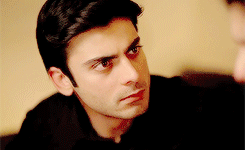 Photo: Tumblr[/caption]
2. His music
The way he plays the guitar and sings like his life depended on it. *melting*
[caption id="" align="alignnone" width="500"]
Photo: Tumblr[/caption]
2. His music
The way he plays the guitar and sings like his life depended on it. *melting*
[caption id="" align="alignnone" width="500"]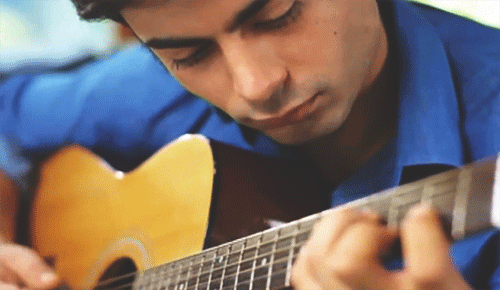 Photo: Tumblr[/caption]
3. His boy-next-door smile
The way he looks down shyly, right before he looks up at you and flashes that dreamy smile.
[caption id="" align="alignnone" width="245"]
Photo: Tumblr[/caption]
3. His boy-next-door smile
The way he looks down shyly, right before he looks up at you and flashes that dreamy smile.
[caption id="" align="alignnone" width="245"]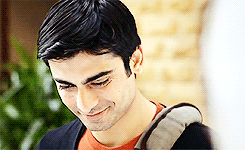 Photo: Tumblr[/caption]
4. The way he blinks
I bet you never thought blinking could look so seductive, did you? Well, look for yourself!
[caption id="" align="alignnone" width="500"]
Photo: Tumblr[/caption]
4. The way he blinks
I bet you never thought blinking could look so seductive, did you? Well, look for yourself!
[caption id="" align="alignnone" width="500"]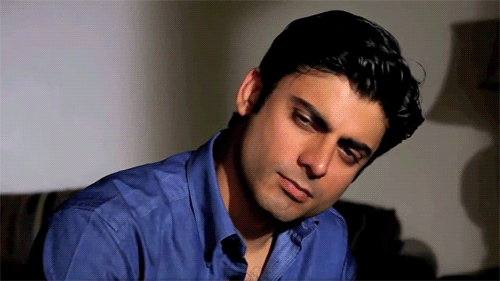 Photo: Tumblr[/caption]
5. The ideal son-in-law
He is the perfect guy to take home to your parents; with his honest, believable face and that ‘I’d do anything for you’ demeanour, I guarantee he would have your family bewitched. Yup, he’d totally burn his hand with hot chai to keep you safe.
[caption id="" align="alignnone" width="245"]
Photo: Tumblr[/caption]
5. The ideal son-in-law
He is the perfect guy to take home to your parents; with his honest, believable face and that ‘I’d do anything for you’ demeanour, I guarantee he would have your family bewitched. Yup, he’d totally burn his hand with hot chai to keep you safe.
[caption id="" align="alignnone" width="245"]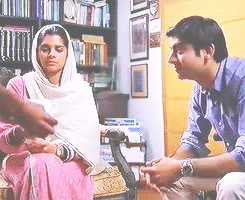 Photo: Tumblr[/caption]
6. That stubble!
OMG! OMG! OMG! That beard of his! How can
Photo: Tumblr[/caption]
6. That stubble!
OMG! OMG! OMG! That beard of his! How can  Photo: Tumblr[/caption]
7. That swagger
How he puts the entire screen on fire the minute he enters. Did I mention the suave beard?
[caption id="" align="alignnone" width="500"]
Photo: Tumblr[/caption]
7. That swagger
How he puts the entire screen on fire the minute he enters. Did I mention the suave beard?
[caption id="" align="alignnone" width="500"]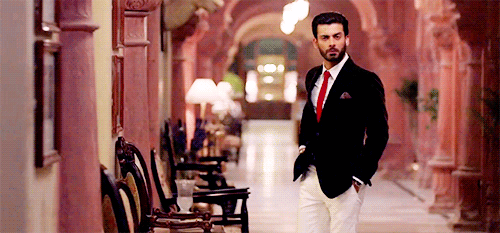 Photo: Tumblr[/caption]
8. The throaty chuckle
The way he squints his eyes, breaks into a dashing smile and surprises you further with a hearty chuckle. Yup, we’re dying.
[caption id="" align="alignnone" width="500"]
Photo: Tumblr[/caption]
8. The throaty chuckle
The way he squints his eyes, breaks into a dashing smile and surprises you further with a hearty chuckle. Yup, we’re dying.
[caption id="" align="alignnone" width="500"]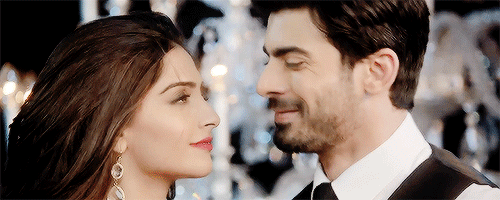 Photo: Tumblr[/caption]
9. What he wears
Whether he wears a suit, a waistcoat or a sherwani, he always looks dapper as hell, with impeccably styled hair. Though I still prefer him in a sherwani. Yup, anyday.
[caption id="" align="alignnone" width="250"]
Photo: Tumblr[/caption]
9. What he wears
Whether he wears a suit, a waistcoat or a sherwani, he always looks dapper as hell, with impeccably styled hair. Though I still prefer him in a sherwani. Yup, anyday.
[caption id="" align="alignnone" width="250"] Photo: Tumblr[/caption]
10. His modesty
Though he’s taken over social media, and the hearts of all the girls in both Pakistan and India, Fawad remains humble and blushes every time he is praised. It’s adorable!
[caption id="" align="alignnone" width="500"]
Photo: Tumblr[/caption]
10. His modesty
Though he’s taken over social media, and the hearts of all the girls in both Pakistan and India, Fawad remains humble and blushes every time he is praised. It’s adorable!
[caption id="" align="alignnone" width="500"] Photo: Tumblr[/caption]
So, now you know why we’re hopelessly, helplessly and irrevocably smitten by him and his Greek god looks. Girls are dying to just be in the same room as him and boys (0bviously) want to be him. All of us counted the hours, minutes and seconds for
Photo: Tumblr[/caption]
So, now you know why we’re hopelessly, helplessly and irrevocably smitten by him and his Greek god looks. Girls are dying to just be in the same room as him and boys (0bviously) want to be him. All of us counted the hours, minutes and seconds for 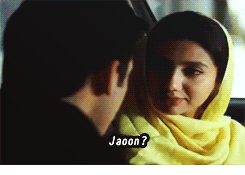 Photo: Tumblr[/caption]
After watching
Photo: Tumblr[/caption]
After watching  Photo: Khoobsurat Facebook page[/caption]
In the beginning, the pace was really fast and, personally, I think both Fawad and Sonam deserved a spicier entry (it is a Bollywood chick flick after all). Also, the scene where both their characters meet for the first time is abrupt. Had it been a stronger and funner meeting, their relationship would've seemed more interesting.
[caption id="" align="alignnone" width="595"]
Photo: Khoobsurat Facebook page[/caption]
In the beginning, the pace was really fast and, personally, I think both Fawad and Sonam deserved a spicier entry (it is a Bollywood chick flick after all). Also, the scene where both their characters meet for the first time is abrupt. Had it been a stronger and funner meeting, their relationship would've seemed more interesting.
[caption id="" align="alignnone" width="595"]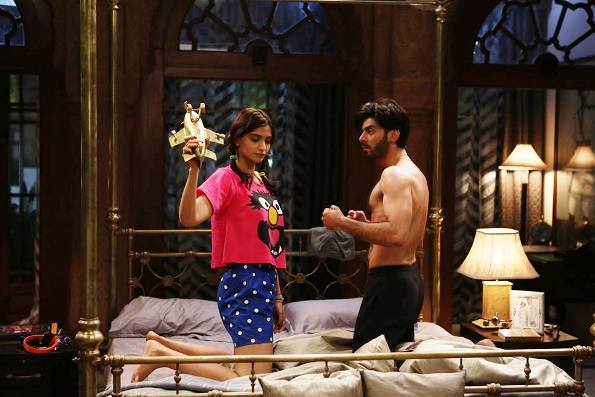 Photo: Khoobsurat Facebook page[/caption]
Another fun character was Dr Mili's mother Manju (
Photo: Khoobsurat Facebook page[/caption]
Another fun character was Dr Mili's mother Manju ( Photo: Khoobsurat Facebook page[/caption]
Sonam's character was cute and her acting was pretty likeable this time round. While she was full of energy, Fawad's character was intense and sombre, which he played perfectly.
[caption id="" align="alignnone" width="476"]
Photo: Khoobsurat Facebook page[/caption]
Sonam's character was cute and her acting was pretty likeable this time round. While she was full of energy, Fawad's character was intense and sombre, which he played perfectly.
[caption id="" align="alignnone" width="476"] Photo: Khoobsurat Facebook page[/caption]
Many reviews say that
Photo: Khoobsurat Facebook page[/caption]
Many reviews say that  Photo: Khoobsurat Facebook page[/caption]
If you compare Fawad to
Photo: Khoobsurat Facebook page[/caption]
If you compare Fawad to 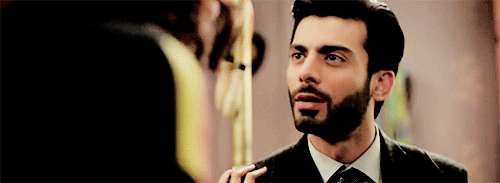 Photo: Tumblr[/caption]
2. When Sonam confesses out loud to having dirty thoughts about him and he confesses the same to himself (in his head). They both are drunk, this scene is extremely adorable!
[caption id="" align="alignnone" width="500"]
Photo: Tumblr[/caption]
2. When Sonam confesses out loud to having dirty thoughts about him and he confesses the same to himself (in his head). They both are drunk, this scene is extremely adorable!
[caption id="" align="alignnone" width="500"]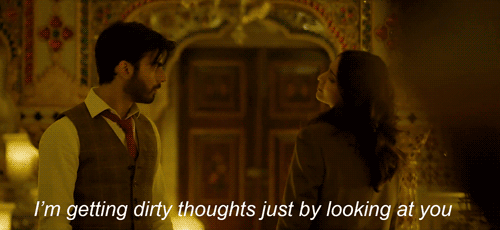 Photo: Tumblr[/caption]
3. When he sees Sonam dancing in her pjs and is shocked by her craziness. Engine ki seeti is one of the best songs of the movie.
[caption id="" align="alignnone" width="500"]
Photo: Tumblr[/caption]
3. When he sees Sonam dancing in her pjs and is shocked by her craziness. Engine ki seeti is one of the best songs of the movie.
[caption id="" align="alignnone" width="500"] Photo: Tumblr[/caption]
[embed width="620"]http://www.dailymotion.com/video/x23cpia_engine-ki-seeti-official-video-song-khoobsurat-sonam-kapoor-fawad-khan_music[/embed]
4. How throughout the movie he hates that she wears short clothes and sits ‘inappropriately’.
[caption id="" align="alignnone" width="500"]
Photo: Tumblr[/caption]
[embed width="620"]http://www.dailymotion.com/video/x23cpia_engine-ki-seeti-official-video-song-khoobsurat-sonam-kapoor-fawad-khan_music[/embed]
4. How throughout the movie he hates that she wears short clothes and sits ‘inappropriately’.
[caption id="" align="alignnone" width="500"] Photo: Tumblr[/caption]
5. The kisses – I like how they didn't make it gross and kept it adorably decent. As a random aunty sitting behind me in the cinema perfectly explained it,
Photo: Tumblr[/caption]
5. The kisses – I like how they didn't make it gross and kept it adorably decent. As a random aunty sitting behind me in the cinema perfectly explained it,
 Photo: Tumblr[/caption]
For me, he is what will sell Khoobsurat to the viewers. I don’t about you guys, but I think Fawad has made this country, and us girls in particular, really proud. So make sure you watch this movie and get smitten by the beautiful phenomenon that is Fawad Khan.
Photo: Tumblr[/caption]
For me, he is what will sell Khoobsurat to the viewers. I don’t about you guys, but I think Fawad has made this country, and us girls in particular, really proud. So make sure you watch this movie and get smitten by the beautiful phenomenon that is Fawad Khan.
 Photo: That Paki Blog[/caption]
One of those superstars is
Photo: That Paki Blog[/caption]
One of those superstars is  Photo: That Paki Blog[/caption]
2. He’s a global phenomenon. Only in the Bollywood loving community, yes, but it is huge. Yes, HUGE! So of course, when fans keep track of him, they run into Republic’s awesome clothes that Fawad dons perfectly. So it’s like when Fawad looks good, so does Republic.
3. They work for each other. Let me tell you how; Republic makes the most dapper clothes in Pakistan. They’re masculine, trendy and totally suit the modern man. And when a modern figure, and an idol such as Fawad, goes for something that embodies the philosophy of the modern man lifestyle, it creates this perfect combination, like hazelnut and chocolate (aka Nutella).
[caption id="" align="alignnone" width="600"]
Photo: That Paki Blog[/caption]
2. He’s a global phenomenon. Only in the Bollywood loving community, yes, but it is huge. Yes, HUGE! So of course, when fans keep track of him, they run into Republic’s awesome clothes that Fawad dons perfectly. So it’s like when Fawad looks good, so does Republic.
3. They work for each other. Let me tell you how; Republic makes the most dapper clothes in Pakistan. They’re masculine, trendy and totally suit the modern man. And when a modern figure, and an idol such as Fawad, goes for something that embodies the philosophy of the modern man lifestyle, it creates this perfect combination, like hazelnut and chocolate (aka Nutella).
[caption id="" align="alignnone" width="600"] Photo: That Paki Blog[/caption]
4.
Photo: That Paki Blog[/caption]
4.  Photo: That Paki Blog[/caption]
5.
Photo: That Paki Blog[/caption]
5. 
 Photo: Twitter[/caption]
The
Photo: Twitter[/caption]
The  Photo: Shaheena Waqar[/caption]
Her cause is not only noble, but effective as well and we all should be proud of having people like her in our midst.
12) Mahira Khan
[caption id="" align="alignnone" width="600"]
Photo: Shaheena Waqar[/caption]
Her cause is not only noble, but effective as well and we all should be proud of having people like her in our midst.
12) Mahira Khan
[caption id="" align="alignnone" width="600"] Mahira Khan (L) and Shahrukh Khan[/caption]
Just as it seemed as if the dust had settled on the
Mahira Khan (L) and Shahrukh Khan[/caption]
Just as it seemed as if the dust had settled on the  Photo: Naila Jamall Aladin[/caption]
This school instills in its students the idea of giving back, helping the community and benefiting more than just oneself, and all these traits are much needed for every individual in Pakistan today. Though just a drop right now, Aladin and her school are working towards creating substantial waves and they should be supported and appreciated.
10) Farahnaz Zahidi
Becoming a shining emblem for Pakistani female journalists,
Photo: Naila Jamall Aladin[/caption]
This school instills in its students the idea of giving back, helping the community and benefiting more than just oneself, and all these traits are much needed for every individual in Pakistan today. Though just a drop right now, Aladin and her school are working towards creating substantial waves and they should be supported and appreciated.
10) Farahnaz Zahidi
Becoming a shining emblem for Pakistani female journalists,  9) Aamina Jahangir
While beginning with just her A-levels security-deposit money as initial capital,
9) Aamina Jahangir
While beginning with just her A-levels security-deposit money as initial capital,  Photo: Facebook[/caption]
The entrepreneur has a diploma in law and she manages her venture by assistance from different companies who sponsor her delicacies – Proctor & Gamble being one of them.
The Cakery is making new waves for culinary minds to persevere and realise their own dreams, which is motivational as well as exceptional.
8) Salma Habib
Working with children who belong to the more destitute, slum areas of Karachi,
Photo: Facebook[/caption]
The entrepreneur has a diploma in law and she manages her venture by assistance from different companies who sponsor her delicacies – Proctor & Gamble being one of them.
The Cakery is making new waves for culinary minds to persevere and realise their own dreams, which is motivational as well as exceptional.
8) Salma Habib
Working with children who belong to the more destitute, slum areas of Karachi,  Photo: Facebook[/caption]
By helping these children express through art, Habib is able to create a sense of individuality and self-esteem in them, which is often lacking in street children. Every week, she focuses on a band of children and assists them in addressing their qualities, which is inspirational to say the least. More people like Habib need to be present in our society, so that these children may be able to find some colour in their perpetually grey lives.
7) Shabina Mustafa
Shabina Mustafa is one of those people who aim towards a goal and do everything in their power to achieve it. While chasing her dream to disseminate education, Mustafa started a school in her own garage, which was later dubbed as
Photo: Facebook[/caption]
By helping these children express through art, Habib is able to create a sense of individuality and self-esteem in them, which is often lacking in street children. Every week, she focuses on a band of children and assists them in addressing their qualities, which is inspirational to say the least. More people like Habib need to be present in our society, so that these children may be able to find some colour in their perpetually grey lives.
7) Shabina Mustafa
Shabina Mustafa is one of those people who aim towards a goal and do everything in their power to achieve it. While chasing her dream to disseminate education, Mustafa started a school in her own garage, which was later dubbed as  Photo: The Garage School website[/caption]
6) Ayesha Farooq
Pakistan’s
Photo: The Garage School website[/caption]
6) Ayesha Farooq
Pakistan’s  Photo: Reuters[/caption]
Ayesha has been involved in purging Waziristan off Taliban strongholds and is thus a hero in her own right for risking her life for the security and safety of Pakistan. She still maintains close links with her faith and culture yet is
Photo: Reuters[/caption]
Ayesha has been involved in purging Waziristan off Taliban strongholds and is thus a hero in her own right for risking her life for the security and safety of Pakistan. She still maintains close links with her faith and culture yet is  Photo: RehamKhanOfficial.com[/caption]
This was a difficult choice for me because
Photo: RehamKhanOfficial.com[/caption]
This was a difficult choice for me because  Photo: Twitter[/caption]
I first came across
Photo: Twitter[/caption]
I first came across  Photo: AFP[/caption]
Although
Photo: AFP[/caption]
Although  Photo: Online[/caption]
Most principals throughout schools are known for their emphasis on discipline and decorum but
Photo: Online[/caption]
Most principals throughout schools are known for their emphasis on discipline and decorum but  When I think about that horrific day the epitome of innocence was shattered, it still raises a huge lump in my throat and tears well up in my eyes. The day that no Pakistani must ever forget:
When I think about that horrific day the epitome of innocence was shattered, it still raises a huge lump in my throat and tears well up in my eyes. The day that no Pakistani must ever forget: 

 Photo: Facebook page[/caption]
If you have missed Mahira post-
Photo: Facebook page[/caption]
If you have missed Mahira post- Photo: Facebook page[/caption]
[caption id="" align="alignnone" width="600"]
Photo: Facebook page[/caption]
[caption id="" align="alignnone" width="600"] Photo: Facebook page[/caption]
From what I have heard, a major part of the movie was shot in Karachi while some of the scenes were also shot in San Francisco. So if you are romantic soul in search of wanderlust, you’d love the movie for the locations and the mesmerising views.
3. Balle Balle is the new London Thumukda
[embed width="620"]http://www.dailymotion.com/video/x2twdft[/embed]
Okay, I know this may come off as a bit exaggerated, but the songs were pretty good. Balle balle stole the show for me, While Maula Maula came in second, because Abida Parveen. Enough said!
4. Support #PakistaniCinema
Let’s be honest, we all want our entertainment industry to grow and flourish. Since the past two years, Pakistan has witnessed a changing trend in the movie industry. Due to the inception of
Photo: Facebook page[/caption]
From what I have heard, a major part of the movie was shot in Karachi while some of the scenes were also shot in San Francisco. So if you are romantic soul in search of wanderlust, you’d love the movie for the locations and the mesmerising views.
3. Balle Balle is the new London Thumukda
[embed width="620"]http://www.dailymotion.com/video/x2twdft[/embed]
Okay, I know this may come off as a bit exaggerated, but the songs were pretty good. Balle balle stole the show for me, While Maula Maula came in second, because Abida Parveen. Enough said!
4. Support #PakistaniCinema
Let’s be honest, we all want our entertainment industry to grow and flourish. Since the past two years, Pakistan has witnessed a changing trend in the movie industry. Due to the inception of  Photo: Facebook page[/caption]
Everyone will be confused in the first half of the movie. Fifty minutes into the movie and you’d still be watching Mahira going gaga over her cousin, Irtiza, who she’s in love with.
3. No clarity
[caption id="" align="alignnone" width="600"]
Photo: Facebook page[/caption]
Everyone will be confused in the first half of the movie. Fifty minutes into the movie and you’d still be watching Mahira going gaga over her cousin, Irtiza, who she’s in love with.
3. No clarity
[caption id="" align="alignnone" width="600"] Photo: Facebook page[/caption]
Humayun is no doubt a brilliant actor and I believe he should have been given more screen presence throughout the movie. Also, Humayun goes abroad for two years and it’s still not clear why he actually went there. ‘It’s good for his career’, is all he said in the movie. No other explanation was given as to why he went abroad. Was it a job offer, did you have to go for studies? What exactly did you go there for?
4. Lack of character development
A little more detail and focus on the characters would have helped in a proper character development. Supporting casts were also given very few dialogues. Oh and who was the guy who accompanied Irtiza to and back from the airport? Still unknown.
5. First half was slow
[caption id="" align="alignnone" width="600"]
Photo: Facebook page[/caption]
Humayun is no doubt a brilliant actor and I believe he should have been given more screen presence throughout the movie. Also, Humayun goes abroad for two years and it’s still not clear why he actually went there. ‘It’s good for his career’, is all he said in the movie. No other explanation was given as to why he went abroad. Was it a job offer, did you have to go for studies? What exactly did you go there for?
4. Lack of character development
A little more detail and focus on the characters would have helped in a proper character development. Supporting casts were also given very few dialogues. Oh and who was the guy who accompanied Irtiza to and back from the airport? Still unknown.
5. First half was slow
[caption id="" align="alignnone" width="600"] Photo: Facebook page[/caption]
The first half of the movie was a little slow. However, the second half of the movie managed to pull up the pace and while some scenes were shot brilliantly, some were hazy.
If I had to rate Bin Roye in each department, it would be,
Music: Four out of five
Eye candy: Four out of five
Direction: Three out of five
Overall: Three out of five
If you are looking to take your family out on
Photo: Facebook page[/caption]
The first half of the movie was a little slow. However, the second half of the movie managed to pull up the pace and while some scenes were shot brilliantly, some were hazy.
If I had to rate Bin Roye in each department, it would be,
Music: Four out of five
Eye candy: Four out of five
Direction: Three out of five
Overall: Three out of five
If you are looking to take your family out on 
 Photo: Twitter[/caption]
2. Mathira slips the tongue
I’m thinking Molty Foam fingers, nude cholis and a mohawk sported by controversy queen
Photo: Twitter[/caption]
2. Mathira slips the tongue
I’m thinking Molty Foam fingers, nude cholis and a mohawk sported by controversy queen  3. Sadaf Kanwal trips
How can a size -zero drop dead
3. Sadaf Kanwal trips
How can a size -zero drop dead  4. Model Jahan-e-Khalid wears a swan dress
Okay, so I have two wishes in life before I die.
1. I want to see
4. Model Jahan-e-Khalid wears a swan dress
Okay, so I have two wishes in life before I die.
1. I want to see  Swans too girly for this male model?
How about a horse thrown around his muscular shoulders? No?
How about a dog wrapped around his waist? How about a turban made from choohas (mice)? No?
I’m going to die unfulfilled!
5. Deepak Perwani pulls a Kanye West on Urwa Hocane
Swans too girly for this male model?
How about a horse thrown around his muscular shoulders? No?
How about a dog wrapped around his waist? How about a turban made from choohas (mice)? No?
I’m going to die unfulfilled!
5. Deepak Perwani pulls a Kanye West on Urwa Hocane



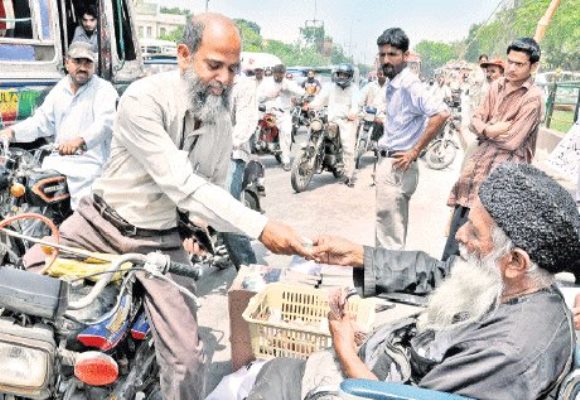 Photo: AFP[/caption]
Photo: AFP[/caption]
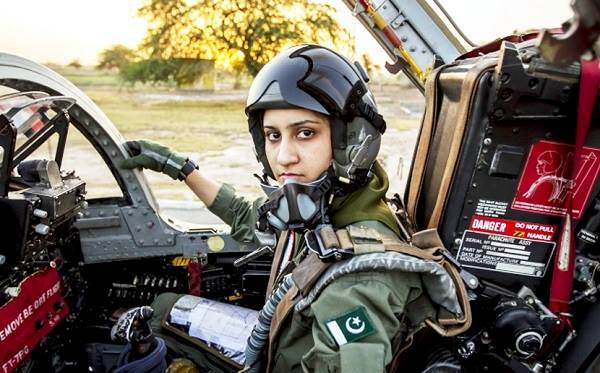 Photo: AFP[/caption]
Photo: AFP[/caption]
 Photo: AFP[/caption]
Calmness and serenity tends to take over the mind and soul when visiting places like the
Photo: AFP[/caption]
Calmness and serenity tends to take over the mind and soul when visiting places like the 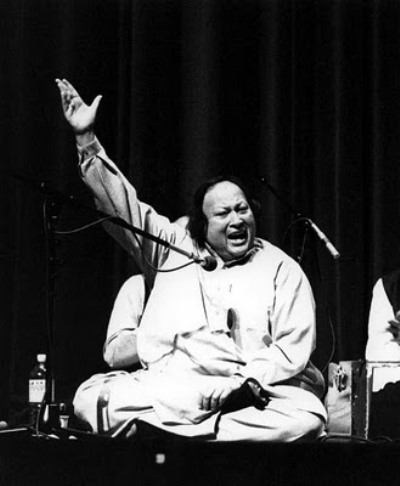 Photo: AFP[/caption]
Photo: AFP[/caption]
 Photo: File[/caption]
Over the past couple of decades, the Pakistani
Photo: File[/caption]
Over the past couple of decades, the Pakistani 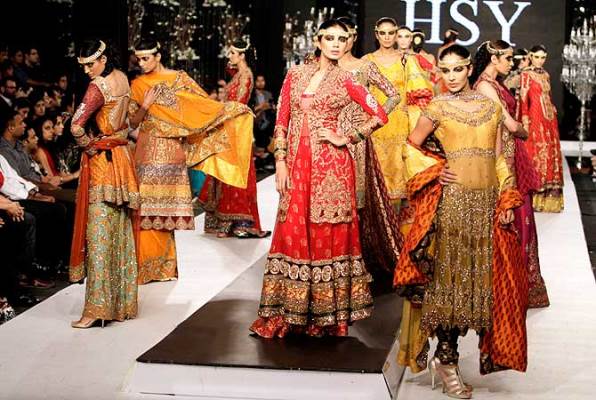 Photo: AFP[/caption]
The Pakistani
Photo: AFP[/caption]
The Pakistani Uncles, Aunts, Siblings, Cousins and Friends; a Pakistani wedding is grand vibrant affair.
Uncles, Aunts, Siblings, Cousins and Friends; a Pakistani wedding is grand vibrant affair.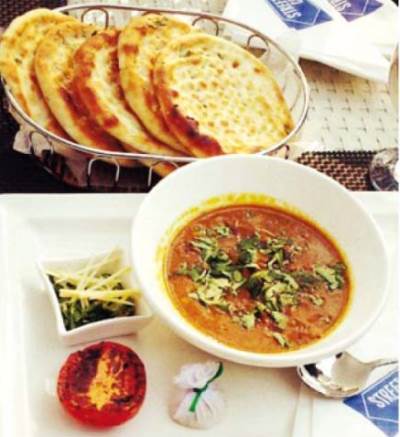 Photo: HAFSAH SARFARAZ[/caption]
Photo: HAFSAH SARFARAZ[/caption]
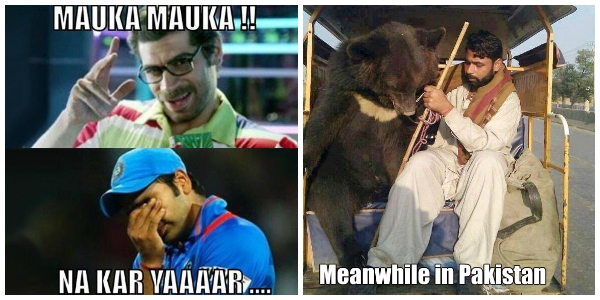 Photo: File[/caption]
Photo: File[/caption]
 Photo: File[/caption]
One doesn’t need millions to help others out; you just have to be Pakistani. We put others
Photo: File[/caption]
One doesn’t need millions to help others out; you just have to be Pakistani. We put others 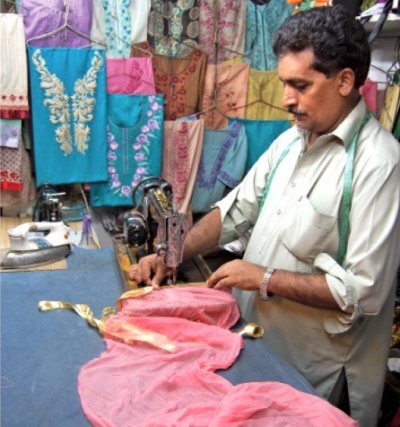 Photo: Express[/caption]
From a young age, we have been trained to work for what we want; nothing comes easily to the
Photo: Express[/caption]
From a young age, we have been trained to work for what we want; nothing comes easily to the  Photo: File[/caption]
Pakistan currently has a
Photo: File[/caption]
Pakistan currently has a  Photo: MQM[/caption]
In Pakistan, no task is too difficult. All you have to do is make sure you know a person with power and authority and voila, the sky’s the limit.
14. Nothing is spared from our critical analysis, even TV shows
[caption id="" align="alignnone" width="400"]
Photo: MQM[/caption]
In Pakistan, no task is too difficult. All you have to do is make sure you know a person with power and authority and voila, the sky’s the limit.
14. Nothing is spared from our critical analysis, even TV shows
[caption id="" align="alignnone" width="400"]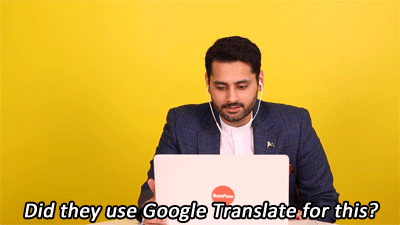 An in depth analysis of the TV show Homeland.
An in depth analysis of the TV show Homeland.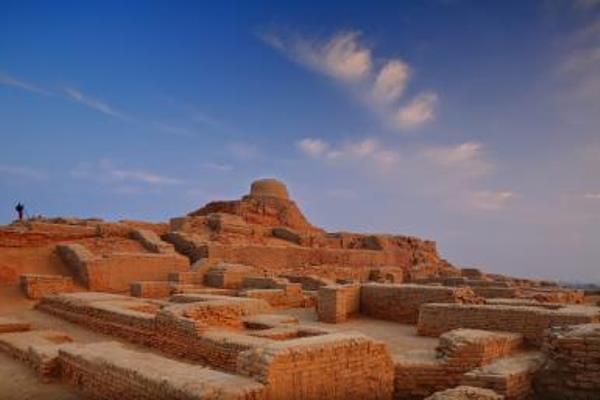 Photo: Getty Images[/caption]
Pakistan is home to some of the
Photo: Getty Images[/caption]
Pakistan is home to some of the 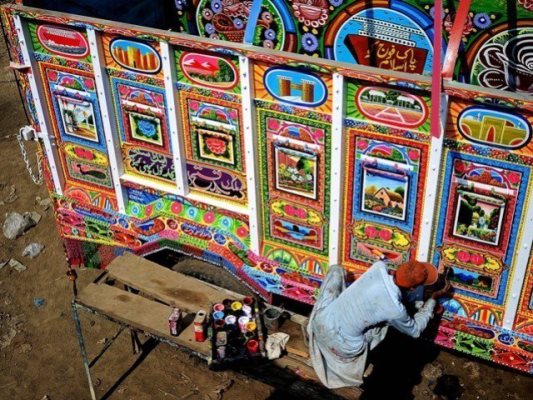 Photo: File[/caption]
Our
Photo: File[/caption]
Our 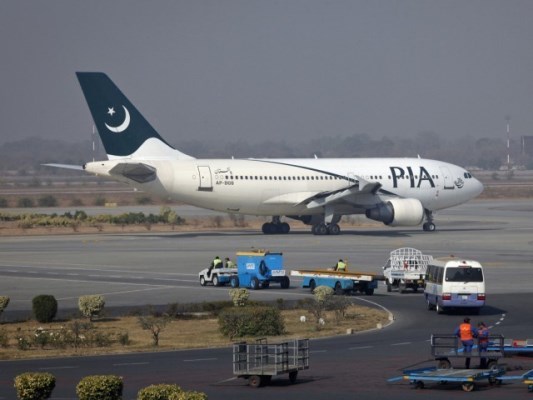 Photo: Reuters[/caption]
Photo: Reuters[/caption]
 Photo: Reuters[/caption]
We see their
Photo: Reuters[/caption]
We see their 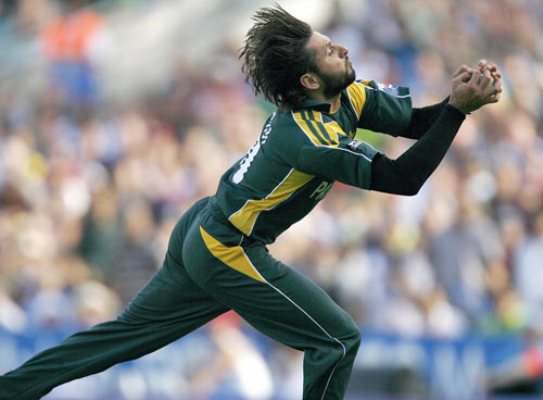 The heartthrob of the Pakistani nation, Shahid Khan Afridi.
The heartthrob of the Pakistani nation, Shahid Khan Afridi. Photo: AFP[/caption]
Clad in green jerseys,
Photo: AFP[/caption]
Clad in green jerseys,  Photo: AP/Sani Maikatanga[/caption]
Our sehris and iftaris are nothing short of a
Photo: AP/Sani Maikatanga[/caption]
Our sehris and iftaris are nothing short of a  Dil Bola Pakola (The heart screams Pakola)
Dil Bola Pakola (The heart screams Pakola) Childhood memories come back to life!
Childhood memories come back to life!